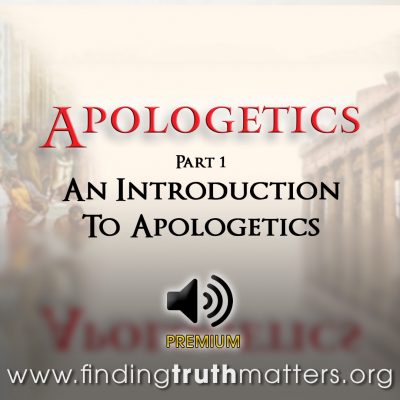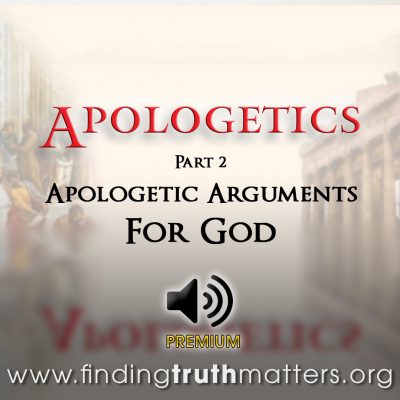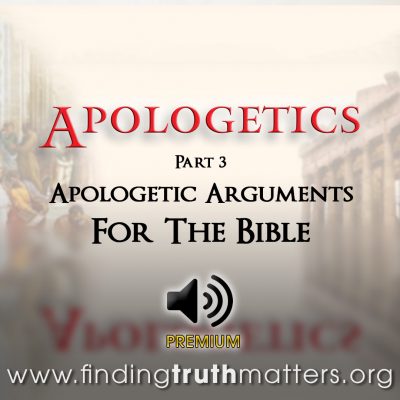by Dr. Andrew Corbett, pastor of Legana Christian Church, and President of ICI Theological College Australia – Song of Solomon – Erotica in the Bible?
IS EROTICA IN THE BIBLE? A FRESH LOOK AT AN OLD WAY OF LOOKING AT THE SONG OF SOLOMON
Almost without exception, preachers promote the idea that the Song of Solomon is loaded with sexually erotic symbolism and allegory that extols the joys of monogamous marriage. If this be true then it is completely out of step with the overall revelation of God’s story of redemption!
The story goes, according to some preachers, that Solomon sees a girl, falls in love, takes her, has his way with her and she is entirely complicit with this erotic liaison. The language, these preachers argue, is allegorical so as to show some decorum about what is usually not often talked about: the act of sex between a husband and his bride. I would like to debunk this myth and propose a different story that not only fits perfectly with the text but also the overall message of Scripture.
 Consider the big problem. It is universally accepted that the Song of Solomon is about the joys of monogamous marriage. It is further proposed that it is also about the joy of monogamous sexual union between a husband and his bride. While the former is not in dispute (that it does promote monogamous marriage and the faithfulness required to achieve it), If you were going to have this as your goal, would you choose King Solomon to exemplify it?
Consider the big problem. It is universally accepted that the Song of Solomon is about the joys of monogamous marriage. It is further proposed that it is also about the joy of monogamous sexual union between a husband and his bride. While the former is not in dispute (that it does promote monogamous marriage and the faithfulness required to achieve it), If you were going to have this as your goal, would you choose King Solomon to exemplify it?
Secondly, consider the overall message of Scripture- God’s unfolding plan of redemption. Every book in the Bible reflects this. Based on the idea that the Song of Solomon is about his erotic liaison between Solomon with his bride, the only way this book could be seen to fit within this unfolding revelation would be to allegorise it to be a picture of Christ and His Church – but even then it’s extremely difficult to be consistent with our allegorising to make it fit this interpretation.
Added to this is the hermeneutical (the way we interpret Scripture) problem. How did the original audience understand this book? Would they have thought that it was about sacred eroticism? Would they have thought that it was about Christ and His Church?
What I am proposing is not a new way of looking at the Song of Songs. In fact, it is centuries old. But some who have read this far have already determined that what I am saying is that erotic love between a husband and a wife is not endorsed in Scripture. I am not going to say this. But I am going to strenuously argue that this is not the point of the Song of Solomon! Does the Bible contain practical instructions for how a husband and a wife can engage in erotic love? No, it does not. And for those preachers who appeal to the Song of Solomon and twist its content to suggest that it does, I wish they would stop and re-evaluate this text.
 Consider the historical background to this story. Israel was sliding into apostasy. Solomon was taxing his people heavily and being led astray by “many wives.” The Law of Moses had forbidden Kings from both of these wrongs-
Consider the historical background to this story. Israel was sliding into apostasy. Solomon was taxing his people heavily and being led astray by “many wives.” The Law of Moses had forbidden Kings from both of these wrongs-
And he shall not acquire many wives for himself, lest his heart turn away, nor shall he acquire for himself excessive silver and gold.
Deuteronomy 17:17
For when Solomon was old his wives turned away his heart after other gods, and his heart was not wholly true to the LORD his God, as was the heart of David his father.
First Kings 11:4
Solomon presided over a progressive spiritual decline in Israel. Just like its King, the nation was becoming increasingly unfaithful towards God. And in the midst of this growing apostasy, God used an episode in the life of Solomon himself to make a point to the whole nation: despite the most alluring temptations it is possible to remain faithful and honour the covenant.
.
SOLOMON IS NOT THE LOVER
 Here’s a different story: A young, beautiful, Shulammite farm-girl is betrothed to her sweet-heart who is a shepherd. One day the King travels by with his retinue and eyes this young beauty. He orders her to be taken into his harem. She is taken against her will to the harem of Solomon’s wives and concubines. She is desperate not to be violated and to escape so that she can return to her betrothed. She manages to escape and asks the night watchmen if they have seen her betrothed looking for her. Before she can successfully return, she is recaptured but this time kept under lock and key. Solomon makes his inevitable advances but she diplomatically resists him despite his offers of wealth, power and fame. After a possible period of years, she is allowed to return to home where her brothers come out to meet her and question whether she has remained faithful to her betrothed. She tells them that despite the time she has been away (her young sister has now become a young woman) she has indeed remained faithful to the covenant with her betrothed. And thus ends a beautiful illustration of faithfulness which indicts Israel for its unfaithfulness towards God.
Here’s a different story: A young, beautiful, Shulammite farm-girl is betrothed to her sweet-heart who is a shepherd. One day the King travels by with his retinue and eyes this young beauty. He orders her to be taken into his harem. She is taken against her will to the harem of Solomon’s wives and concubines. She is desperate not to be violated and to escape so that she can return to her betrothed. She manages to escape and asks the night watchmen if they have seen her betrothed looking for her. Before she can successfully return, she is recaptured but this time kept under lock and key. Solomon makes his inevitable advances but she diplomatically resists him despite his offers of wealth, power and fame. After a possible period of years, she is allowed to return to home where her brothers come out to meet her and question whether she has remained faithful to her betrothed. She tells them that despite the time she has been away (her young sister has now become a young woman) she has indeed remained faithful to the covenant with her betrothed. And thus ends a beautiful illustration of faithfulness which indicts Israel for its unfaithfulness towards God.
| SONG OF SOLOMON | COMMENTARY SHOWING THAT IT IS NOT ABOUT HER LOVE FOR SOLOMON |
| Song 1:1 The Song of Songs, which is Solomon’s. | This was either written by Solomon, or about him. |
| Song 1:5 ¶ I am very dark, but lovely, O daughters of Jerusalem, like the tents of Kedar, like the curtains of Solomon. Song 1:6 Do not gaze at me because I am dark, because the sun has looked upon me. My mother’s sons were angry with me; they made me keeper of the vineyards, but my own vineyard I have not kept! |
This Shulammite girl was tanned because she was not a usual member of the royal harem, but rather, worked outdoors in her family’s vineyard. |
| Song 1:7 Tell me, you whom my soul loves, where you pasture your flock, where you make it lie down at noon; for why should I be like one who veils herself beside the flocks of your companions? | This makes little sense if she is asking about Solomon–but it makes a lot of sense if she is talking about her shepherd-fiance. |
| Song 1:8 ¶ If you do not know, O most beautiful among women, follow in the tracks of the flock, and pasture your young goats beside the shepherds’ tents. | Where can her lover be found? Not in the Palace. Not in Jerusalem. But follow the shepherds’ track which leads to the shepherds’ tents and you’ll find her lover. |
| Song 1:9 ¶ I compare you, my love, to a mare among Pharaoh’s chariots. Song 1:10 Your cheeks are lovely with ornaments, your neck with strings of jewels. Song 1:11 ¶ We will make for you ornaments of gold, studded with silver. |
Solomon attempts to lure her with precious jewelry. |
| Song 1:12 ¶ While the king was on his couch, my nard gave forth its fragrance. Song 1:13 My beloved is to me a sachet of myrrh that lies between my breasts. Song 1:14 My beloved is to me a cluster of henna blossoms in the vineyards of Engedi. |
In the midst of Solomon’s seductions she remembers her shepherd lover and speaks of him in a way that recalls their time in the vineyard. |
| Song 1:15 ¶ Behold, you are beautiful, my love; behold, you are beautiful; your eyes are doves. Song 1:16 ¶ Behold, you are beautiful, my beloved, truly delightful. Our couch is green; Song 1:17 the beams of our house are cedar; our rafters are pine… Song 2:6 His left hand is under my head, and his right hand embraces me! Song 2:7 I adjure you, O daughters of Jerusalem, by the gazelles or the does of the field, that you not stir up or awaken love until it pleases. Song 2:8 The voice of my beloved! Behold, he comes, leaping over the mountains, bounding over the hills. Song 2:9 My beloved is like a gazelle or a young stag. Behold, there he stands behind our wall, gazing through the windows, looking through the lattice… |
She talks of the love between her and the shepherd she is betrothed to and remembers some of the special romantic moments they have shared. Note the rural terminology she uses to describe her love for her betrothed and note verses 9 and 17 as describing him as “young”. |
| Song 3:1 ¶ On my bed by night I sought him whom my soul loves; I sought him, but found him not. Song 3:2 I will rise now and go about the city, in the streets and in the squares; I will seek him whom my soul loves. I sought him, but found him not. Song 3:3 The watchmen found me as they went about in the city. “Have you seen him whom my soul loves?” Song 3:4 Scarcely had I passed them when I found him whom my soul loves. I held him, and would not let him go until I had brought him into my mother’s house, and into the chamber of her who conceived me. |
Vs. 1 – Despite being taken by Solomon to be a member of his harem, she longs to return to her village where her betrothed shepherd lover awaits.
Vs. 2 – She suspects that her sweetheart has come to Jerusalem to find her and take her back. She arises in the night to look for him. Vs. 3 – She is found by the night watchmen and asks them whether they have seen her shepherd lover. This is nonsensical if she is referring to Solomon because he was in his palace under the protection of other guards. Vs. 4 – She and her fiance then find each other and they quickly flee back to her childhood village. |
| Song 3:6 ¶ What is that coming up from the wilderness like columns of smoke, perfumed with myrrh and frankincense, with all the fragrant powders of a merchant? Song 3:7 Behold, it is the litter of Solomon! Around it are sixty mighty men, some of the mighty men of Israel, Song 3:8 all of them wearing swords and expert in war, each with his sword at his thigh, against terror by night. Song 3:9 King Solomon made himself a carriage from the wood of Lebanon. |
But Solomon soon realises that she has escaped and comes to her village in a royal carriage with armed soldiers to take her back by force. |
| Song 4:1 ¶ Behold, you are beautiful, my love, behold, you are beautiful! Your eyes are doves behind your veil. Your hair is like a flock of goats leaping down the slopes of Gilead… Song 4:11 Your lips drip nectar, my bride; honey and milk are under your tongue; the fragrance of your garments is like the fragrance of Lebanon. |
After recapturing his harem trophy, Solomon cranks up the seduction with flattery (4:1-11). |
| Song 4:12 A garden locked is my sister, my bride, a spring locked, a fountain sealed… Song 4:15 a garden fountain, a well of living water, and flowing streams from Lebanon. Song 4:16 Awake, O north wind, and come, O south wind! Blow upon my garden, let its spices flow. |
Solomon becomes frustrated that he can not consummate his latest harem kidnapping. To him she is a “locked garden”, a “sealed fountain” (4:12-16). |
| Song 5:2 ¶ I slept, but my heart was awake. A sound! My beloved is knocking. “Open to me, my sister, my love, my dove, my perfect one, for my head is wet with dew, my locks with the drops of the night.” Song 5:3 I had put off my garment; how could I put it on? I had bathed my feet; how could I soil them? Song 5:4 My beloved put his hand to the latch, and my heart was thrilled within me. Song 5:5 I arose to open to my beloved, and my hands dripped with myrrh, my fingers with liquid myrrh, on the handles of the bolt. Song 5:6 I opened to my beloved, but my beloved had turned and gone. My soul failed me when he spoke. I sought him, but found him not; I called him, but he gave no answer. |
As the Shulammite slept she dreamt of her beloved once again rescuing her. In her dream (“I slept, but my heart was awake“) he betrothed comes to Jerusalem to take her back to their village, but alas it is only a dream – “I called him but he gave no answer.” |
| Song 5:7 The watchmen found me as they went about in the city; they beat me, they bruised me, they took away my veil, those watchmen of the walls. | She can it no longer so she once again makes another escape attempt. But this time the Palace Guards are wise to her and capture her – “they bruised me, they took away my veil”. This makes absolutely no sense at all if it is talking about a willing wife of Solomon as the Palace Guards would not ordinarily be brutalising the King’s wife. |
| Song 5:8 I adjure you, O daughters of Jerusalem, if you find my beloved, that you tell him I am sick with love. Song 5:9 ¶ What is your beloved more than another beloved, O most beautiful among women? What is your beloved more than another beloved, that you thus adjure us? Song 5:10 ¶ My beloved is radiant and ruddy, distinguished among ten thousand. Song 5:11 His head is the finest gold; his locks are wavy, black as a raven. Song 5:12 His eyes are like doves beside streams of water, bathed in milk, sitting beside a full pool. Song 5:13 His cheeks are like beds of spices, mounds of sweet-smelling herbs. His lips are lilies, dripping liquid myrrh. Song 5:14 His arms are rods of gold, set with jewels. His body is polished ivory, bedecked with sapphires. Song 5:15 His legs are alabaster columns, set on bases of gold. His appearance is like Lebanon, choice as the cedars. Song 5:16 His mouth is most sweet, and he is altogether desirable. This is my beloved and this is my friend, O daughters of Jerusalem. Song 6:1 ¶ Where has your beloved gone, O most beautiful among women? Where has your beloved turned, that we may seek him with you? Song 6:2 ¶ My beloved has gone down to his garden to the beds of spices, to graze in the gardens and to gather lilies. Song 6:3 I am my beloved’s and my beloved is mine; he grazes among the lilies. |
The other members of the King’s harem (“daughters of Jerusalem”) ask this Shulammite (“most beautiful among women”) what her beloved looks like? (5:9). This would be an absurd question if the beloved in question was Solomon, but it makes perfect sense if the Shulammite’s beloved is her childhood sweetheart, her betrothed, her shepherd-lover. Their other question about where to find her beloved one (6:1) is also nonsensical if her beloved is Solomon. Her answer is that he is grazing (sheep) among the lilies (6:3). |
| Song 6:4 ¶ You are beautiful as Tirzah, my love, lovely as Jerusalem, awesome as an army with banners. Song 6:5 Turn away your eyes from me, for they overwhelm me— Your hair is like a flock of goats leaping down the slopes of Gilead. Song 6:6 Your teeth are like a flock of ewes that have come up from the washing; all of them bear twins; not one among them has lost its young. Song 6:7 Your cheeks are like halves of a pomegranate behind your veil. Song 6:8 There are sixty queens and eighty concubines, and virgins without number. Song 6:9 My dove, my perfect one, is the only one, the only one of her mother, pure to her who bore her. The young women saw her and called her blessed; the queens and concubines also, and they praised her. Song 6:10 ¶ “Who is this who looks down like the dawn, beautiful as the moon, bright as the sun, awesome as an army with banners?” Song 6:11 ¶ I went down to the nut orchard to look at the blossoms of the valley, to see whether the vines had budded, whether the pomegranates were in bloom. Song 6:12 Before I was aware, my desire set me among the chariots of my kinsman, a prince. |
Solomon tries yet again to seduce his reluctant “bride” but even though he assures her that she is praised among the other queens and concubines (6:9), she still refuses to betray the one she is betrothed to. |
| Song 6:13 ¶ Return, return, O Shulammite, return, return, that we may look upon you. Why should you look upon the Shulammite, as upon a dance before two armies? | Finally, Solomon relents. She is allowed to return to her village. She has won the respect of many who want one last opportunity to see her and say goodbye. |
| Song 7:10 I am my beloved’s, and his desire is for me. Song 7:11 ¶ Come, my beloved, let us go out into the fields and lodge in the villages; Song 7:12 let us go out early to the vineyards and see whether the vines have budded, whether the grape blossoms have opened and the pomegranates are in bloom. There I will give you my love. Song 7:13 The mandrakes give forth fragrance, and beside our doors are all choice fruits, new as well as old, which I have laid up for you, O my beloved. |
Her delighted betrothed childhood sweet-heart comes out to greet her and expresses his love and admiration for her (7:1-9). But they both realise that their union will have to be approved by their respective families back in their villages. With their approval, she will give him her love (7:12). She assures him that she has kept herself for him- a love that she has laid up for him (7:13). |
| Song 8:1 ¶ Oh that you were like a brother to me who nursed at my mother’s breasts! If I found you outside, I would kiss you, and none would despise me. Song 8:2 I would lead you and bring you into the house of my mother— she who used to teach me. I would give you spiced wine to drink, the juice of my pomegranate. Song 8:3 His left hand is under my head, and his right hand embraces me! |
As they embrace (“his left hand is under my head, and his right hand embraces me!“, 8:3) she expresses her regret that she was not permitted to continue to grow up in their village where they would have been like brother and sister (8:1). |
| Song 8:8 ¶ We have a little sister, and she has no breasts. What shall we do for our sister on the day when she is spoken for? | As she approaches her childhood village, her brothers come out to meet her- “We have a little sister” (8:8) and suspecting that she has forsaken her commitment to marry her betrothed shepherd, they remind her that before she left she was “spoken for” (8:8). |
| Song 8:9 If she is a wall, we will build on her a battlement of silver, but if she is a door, we will enclose her with boards of cedar. | Her family then comes straight to the point- have you succumbed to the wiles of the King of Israel’s seductions? “If she is a wall…“, that is, if she has been faithful and resisted the advances of Solomon, she will receive her dowry- “we will build on her a battlement of silver”. But if she has opened up to Solomon and been unfaithful to her Shepherd, they will disown her – “we will enclose her with boards of cedar.” (8:9) |
| Song 8:10 ¶ I was a wall, and my breasts were like towers; then I was in his eyes as one who finds peace. Song 8:11 Solomon had a vineyard at Baal-hamon; he let out the vineyard to keepers; each one was to bring for its fruit a thousand pieces of silver. Song 8:12 My vineyard, my very own, is before me; you, O Solomon, may have the thousand, and the keepers of the fruit two hundred. |
She assures them that she has indeed been “a wall” and had not cheated on her betrothed (8:10), even though Solomon was extravagantly rich (“a thousands pieces of silver“, 8:11) and even his managers made “two hundred” pieces of silver (8:12) which must have far more than her simple shepherd lover earned. |
| Song 8:13 ¶ O you who dwell in the gardens, with companions listening for your voice; let me hear it. Song 8:14 ¶ Make haste, my beloved, and be like a gazelle or a young stag on the mountains of spices. |
Now satisfied, her family approves of her marriage to her betrothed and she encourages her shepherd- who dwells in the gardens (8:13) – to speak up – “…your voice; let me hear it.” And then says that they should make haste to enter into their agreed covenant. |
.
THE SHULAMMITE WAS GOD’S MESSAGE TO ISRAEL
The Hebrew word for lover is very similar to the word for shepherd. God had longed for Israel to regard Him as their lover. He was their Shepherd (Psalm 23:1). But the nation had been lured away by false gods and become distracted with objects of prestige and the admiration of people. The Shulammite was a prophetic statement to the nation. Her faithfulness to her childhood betrothed stands alongside two other such Biblical examples of covenant keeping: Hosea, and the Rechabites (Jeremiah 35) which were meant to be both a prophetic statement to, and an indictment of, Israel.
The beauty of erotic love between a husband and his bride is something that the Bible commends. But this is not the message of the Song of Solomon! The picture painted by the Divine Artist is perhaps more beautiful than many have realised. A beautiful young girl commits her love to her childhood sweetheart and despite the allurements of the most powerful man in her nation, she remains faithful, pure, and in love with her shepherd-lover. It is a wonderful story with the central character, the Shulammite, exhibiting the universally admired chutzpah to remain faithful against all odds. It is perhaps timely in our own generation when the most common strategy for dealing with temptation is simply to give into it.
Amen.
Dr. Andrew Corbett, 6th September 2008, Legana, Tasmania, Australia
https://www.findingtruthmatters.org
This article may be copied and distributed if due credit is given to the author, the article is not altered, and the website- https://www.findingtruthmatters.org – is hyperlinked or referenced.
11 Comments
Submit a Comment
-
Sale!

5 Things We Need To Do To Break Our Church’s 200 Barrier, Premium Audio
$0.95 -
Sale!

A Morning With Izaak Walton – The Compleat Man, Premium Audio
$1.25 -
Sale!

Apologetics Part 1 – Introduction To Apologetics, Premium Audio
$0.95 -
Sale!

Apologetics Part 2 – The Apologetic Arguments For God, Premium Audio
$0.95 -
Sale!

Apologetics Part 3 – The Apologetic Arguments For The Bible, Premium Audio
$0.95







































Thank you so much for this explanation! There was always this strange, bitter feeling that would rise up in my spirit when I thought about this book of the Bible. I couldn’t understand why Solomon (a man with so many wives and concubines) was chosen to give us a picture of what true love looks like. As a single woman, it felt like an inappropriate stumbling block.
After this topic came up in conversation the other day, I stopped and prayed, earnestly asking God why He would allow this book to be in the Bible. Mere moments later, I discovered your article. It all makes sense now! What a beautiful story. This is definitely one of the most exciting spiritual truths that has been unlocked for me recently. I will be sharing your article with many others!Praise the Lord!
That’s wonderful Renee. Thank you for taking the time to comment. BTW, keep an eye out for this week’s YouTube video on my channel (DrAndrewC) where I’ll also be telling the story behind this biblical book.
Wow this is an awesome breakdown! This book always gave me anxiety but today this really helped!! Also if she was waiting for her true beloved, is that why she said don’t stir nod awaken love to the daughters of Jerusalem? Anyway awesome!!!
Thank you for writing this. Do you know of any other similar writings as I struggle to find anyone else who has an issue with Song of Songs or indeed who seems to realise Solomon’s story is (unless I missed something) a very serious cautionary tale.
Am I wrong? All I hear is people saying he was so wise and amazing, yet surely scripture tells us he was seduced by worldly wisdom, riches, false gods and women and wanted to glorify himself ahead of God.
While he started brilliantly, he ended by leaving a legacy that split the kingdom and effectively ruined what David established.
Is that not reason to see him as a warning sign that even the wisest can go astray and forget their first love?
Or am I completely wrong?
I must say I was led to research Solomon’s story more closely after picking up the ‘this calls for wisdom’ reference im Revelation and the coincidence that 666 lines up with the volume of gold mentioned in Solomon’s story.
Thank you for your Godly wisdom.
Thank you Jason.
Thank you for such a scholarly and detailed article on this topic. I knew from my first read of this book that it had nothing to do with erotic love between spouses (nor could I understand why anyone would think it does), but I couldn’t make heads or tails of it. Like Renee in the comment above, I prayed about my confusion and found your article shortly thereafter. With your interpretation, the book makes sense both as a story in itself and as part of the overall narrative of the Bible, it is a beautiful story, and it is a brilliant literary work. Now I understand why it is called the Song of Songs.
Thank you Carrie.
2-6-21. I HAVE SEARCHED FOR DECADES (AND IN RECENT MONTHS, CONSISTENTLY) FOR THE TRUTHS YOU WIRTE IN THIS ARTICLE. YOU ARE TRULY SHINING THE LIGHT OF CHRIST INTO A VERY DECEIVED WORLD, AND INTO THE HEARTS OF PASTORS AND TEACHERS IN THE BODY OF CHRIST WHO HAVE BEEN AND ARE TEACHING FALSEHOOD REGARDING THE SONGS OF SOLOMON. I GIVE GLORY TO GOD ALONE FOR THE REVELATION UNDERSTANDING YOU HAVE RECEIVED FROM THE HOLY SPIRIT AND ARE SHARING WITH YOUR READERS REGARDING THE MEANING OF THE SONGS OF SOLOMON AS IT IS RECORDED IN SCRIPTURE. I THANK YOU WITH ALL OF MY HEART. MAY GOD ALMIGHTY BLESS YOU ABUNDANTLY FOR YOUR EFFORTS ON BEHALF OF YOUR BROTHERS AND SISTERS IN CHRIST JESUS.
I read this article for the first time today. I am moved by your explanation, by which I mean I am now more appreciative of the prophecies in the Song of Solomon than before. I believe that the Shulammite woman, indeed, represents The Church, the Jewish church, perhaps at that time, but even more The Christian Church, with Jesus as the Shepherd, and Mary, His Mother, who was filled with Grace , and because of it, most beautiful of all women. The Church, founded by Jesus Christis simultaneously Mary, the undefiled Woman who welcomes God, the Holy Spirit, and remains faithful to Him for eternity, and His Christian Church, of which Mary is the Mother and Queen. This jumped out at me when I read again, but as if for the first time, she comes forth as the morning rising, pure as the moon, bright as the sun, terrible as an army set in battle array. These are the words of the post-Rosary prayer of The Legion of Mary. Tomorrow, August 22, is, coincidentally, the Feast of Mary, Mother and Queen.
Reading the comments this seems like confirmation bias
Good afternoon,
I can find no one to comment on the verses that tell that she takes him to her mother’s bed, or Chap 5 sharing with his friends, or 30 men around his bed? How did you come to ignore these sections?